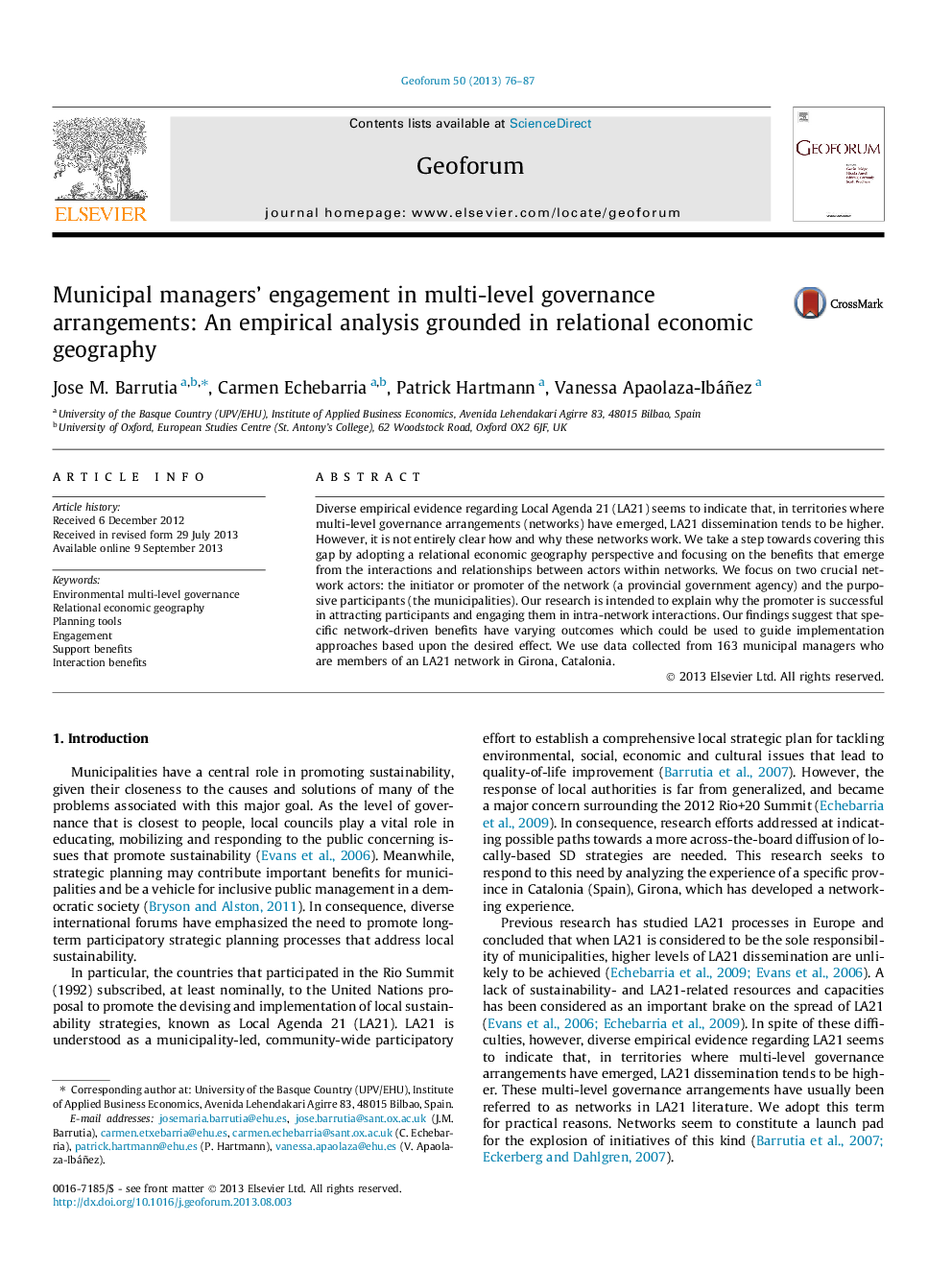| Article ID | Journal | Published Year | Pages | File Type |
|---|---|---|---|---|
| 5074121 | Geoforum | 2013 | 12 Pages |
Abstract
Diverse empirical evidence regarding Local Agenda 21 (LA21) seems to indicate that, in territories where multi-level governance arrangements (networks) have emerged, LA21 dissemination tends to be higher. However, it is not entirely clear how and why these networks work. We take a step towards covering this gap by adopting a relational economic geography perspective and focusing on the benefits that emerge from the interactions and relationships between actors within networks. We focus on two crucial network actors: the initiator or promoter of the network (a provincial government agency) and the purposive participants (the municipalities). Our research is intended to explain why the promoter is successful in attracting participants and engaging them in intra-network interactions. Our findings suggest that specific network-driven benefits have varying outcomes which could be used to guide implementation approaches based upon the desired effect. We use data collected from 163 municipal managers who are members of an LA21 network in Girona, Catalonia.
Keywords
Related Topics
Social Sciences and Humanities
Economics, Econometrics and Finance
Economics and Econometrics
Authors
Jose M. Barrutia, Carmen Echebarria, Patrick Hartmann, Vanessa Apaolaza-Ibáñez,
